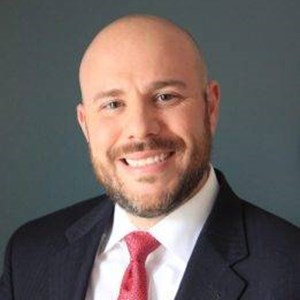Cuyahoga County Veterans Treatment Court (VTC)

The Cuyahoga County Common Pleas Court Judges voted in fall of 2014 to create the Veterans Treatment Court and it was dedicated in May of 2015. Judge Michael E. Jackson, a decorated Marine combat veteran of the Vietnam War, was appointed to oversee the docket.
When Judge Jackson retired in January of 2019, Judge John J. Russo took over the docket. It is currently presided over by Judge Andrew Santoli.
The mission driving the Veterans Treatment Court is to successfully rehabilitate veterans by diverting them from the traditional criminal justice system, and providing them with the unique tools they need to lead a more productive and law-abiding life.
Combat veterans often have issues when they return home from their service. The most serious issues include engaging in high-risk conduct, unemployment, post-traumatic stress syndrome, traumatic brain injuries, homelessness, drugs, and crime. Studies have shown that 18% to 30% of veterans need treatment for these issues and the Veterans Treatment Court addresses them.
Learn more about Veterans Treatment Court and what potential clients could expect.
Many veterans have serious readjustment issues
Combat veterans often have issues when they return home from their service. The most serious issues include engaging in high-risk conduct, unemployment, post-traumatic stress syndrome, traumatic brain injuries, homelessness, drugs, and crime. Studies have shown that 18% to 30% of veterans need treatment for these issues and the Veterans Treatment Court addresses them.
Veterans are eligible to have their cases transferred to VTC
Judges have the discretion to transfer a veteran’s case, where the program will last 12 to 18 months. Veterans charged with any felony that results in a sentence of probation (formally called Community Control Sanctions), or released from prison and placed on probation, may be transferred to the Veterans Treatment Court. Veterans are eligible regardless of the type of discharge. Veterans who do not qualify for VA benefits will receive comparable community services in the same manner as other defendants who presently are on probation. Veterans with a high risk of reoffending in the future, and with a high degree of need of VA or community services, will be admitted first into the VTC program.
Cuyahoga County has the largest veteran population in the state with 9.7%. As of December 30, 2012, the total veteran population in Ohio was 844,000, with 82,000 veterans in Cuyahoga County. Based on a recent review for a one-year period of the bookings in the Sheriff’s Department for a one-year period, the Sheriff’s Department processed 549 veterans into the criminal justice system.
Veterans Treatment Court Mission
"Veterans Treatment Courts use a hybrid integration of Drug Court and Mental Health Court principles to serve military veterans, and sometimes active-duty personnel. They promote sobriety, recovery, and stability through a coordinated response that involves collaboration with the traditional partners found in Drug Courts and Mental Health Courts, as well as the Department of Veterans Affairs healthcare networks, Veterans Benefits Administration, State Departments of Veterans Affairs, volunteer veteran mentors, and organizations that support veterans and veterans’ families."
- The Veterans Treatment Court Mission (Office of National Drug Control Policy, 2010)

Contact Information
Veterans Treatment Court
Gary Kopchak, Coordinator
P: 216.443.8484
F: 216.443.3044
Meghan Patton, Specialty Court Administrator
P: 216.443.5468
F: 216.443.3044
CPMEP@cuyahogacounty.us
Local Rule
30.3 Assignment of Criminal Cases to Veterans Treatment Court Docket
Court Documents
CC VTC Referral Form
Click Here For The Referral Form
CC VTC Volunteer Mentoring Program








